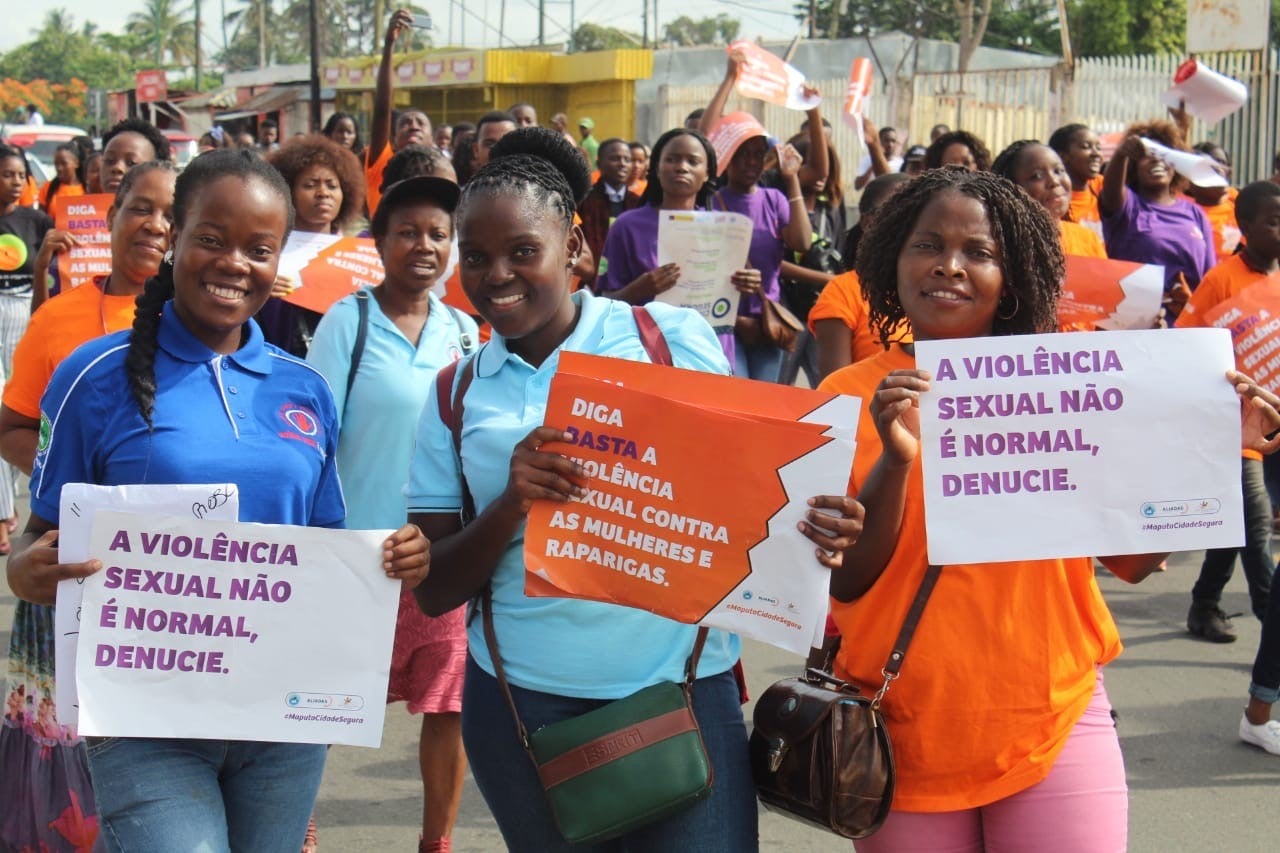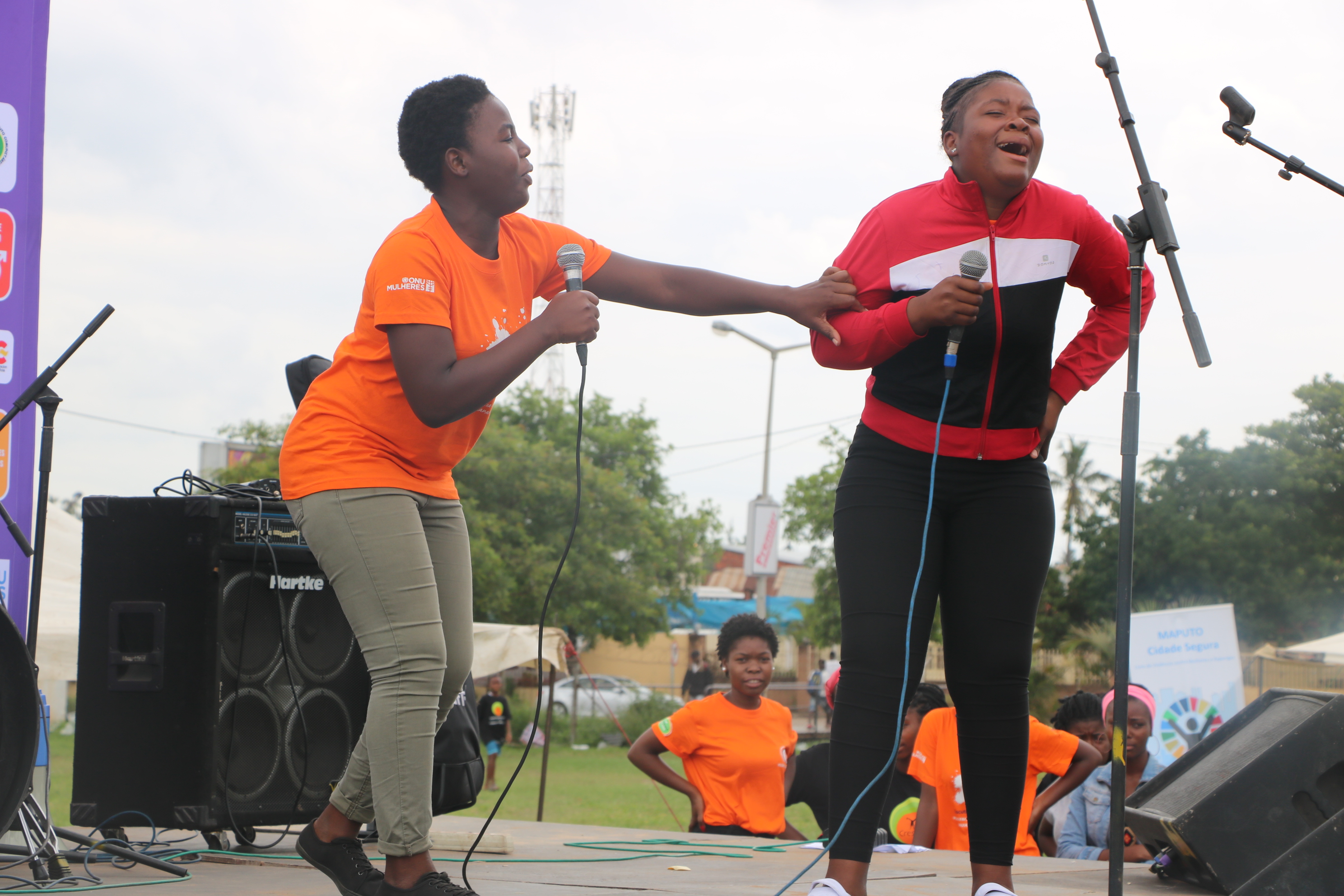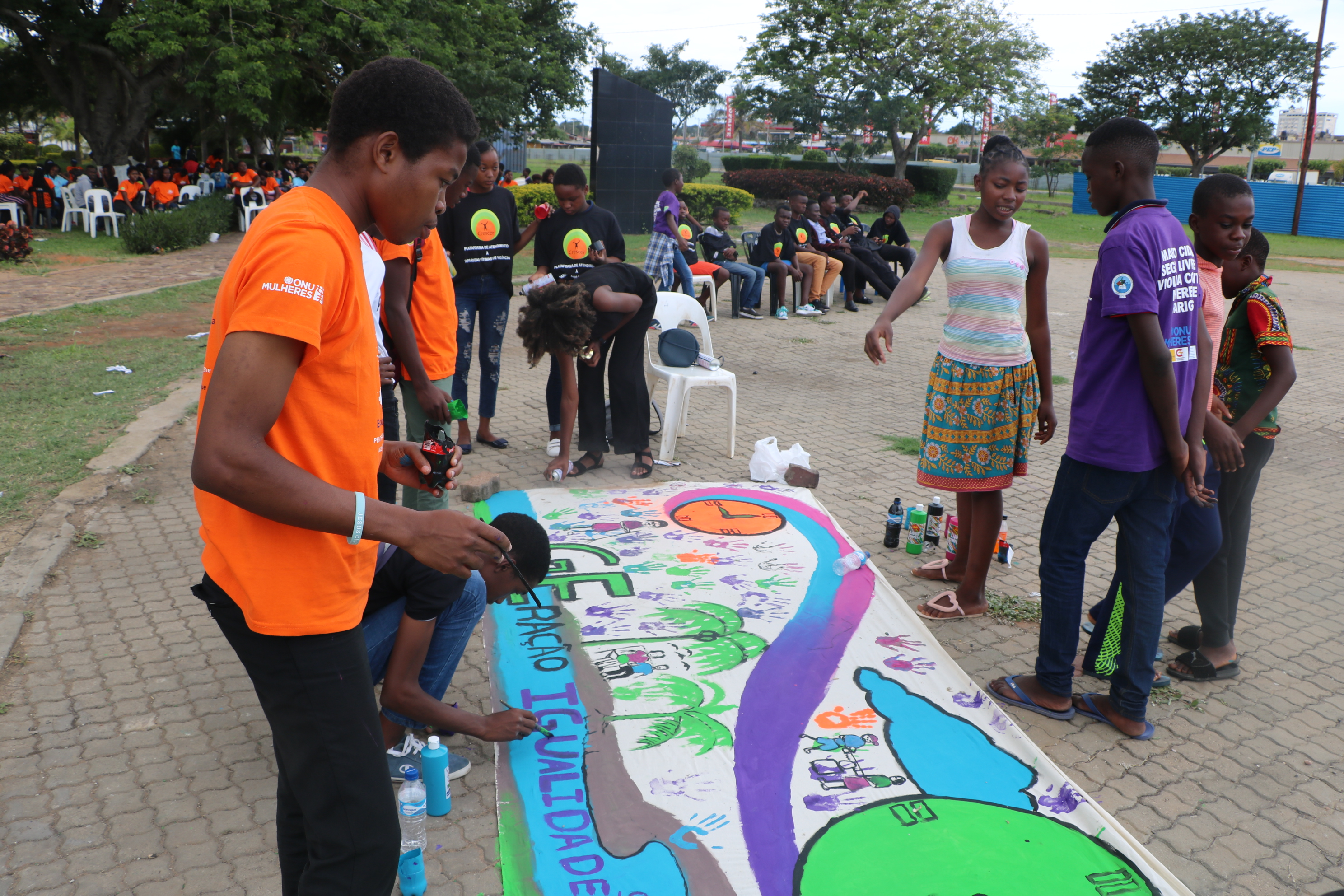UN Women Mozambique supports young women partner organization to demand social protection for women and girls during COVID19
Date:

Associação Socio Cultural Horizonte Azul (ASCHA)[1] a Maputo based civil society organization and a UN Women partner in activities by youth and for youth, particularly on the right of girls and young women, issued a statement addressing government authorities to demand extension of social protection programs for women and girls and other vulnerable groups as long as the COVID19 impact lasts.
“We don’t want the country to stop. We want a government that designs policies and social protection programs for women and girls and other vulnerable groups” said the leader of the association Dalia Macuacua.
“We want women and girls including other vulnerable groups to stay at home in safety with all the necessary conditions secured” she added.
The activists of the association, the young women and men are very active in the public education on COVID 19 prevention in Maxakene, one of the most densely populated informal settlement of Maputo City as well as via a social media campaign initiated at the onset of the prevention of a COVID19 outbreak in Mozambique.

Across every sphere, from health to the economy, security to social protection, the impacts of COVID-19 are exacerbated for women and girls simply by virtue of their sex. Compounded economic impacts are felt especially by women and girls who are generally earning less, saving less, and holding insecure jobs or living close to poverty.[2]
To mitigate this impact decision-makers are urged to:
- Ensure adequate social protection for women facing risks to their jobs and income. This social protection should take the form of subsidies for workers facing lay-offs, mediation to defer utility and rent payments and suspending evictions, increasing access to health care protection.
- Ensure adequate social support for women working in informal sector including extending access to unemployment benefits for non-standard and informal workers.
- Support youth particularly young women who face job losses or in households with no income during this time and will likely face employment challenges following the crisis is crucial to prevent sexual exploitation and abuse including as a result of early and forced unions.
- Ensure access to digital learning and skilling opportunities as well as digital tools to connect youth with employment opportunities.[3]

In line with the measures suggested above, the association argues that the majority of the population work in the informal sector or do not have any form of social or work protection and they live in situation of food insecurity.
“Several women don’t have conditions to comply with government measures that include staying at home, the reason why social protection programs would alleviate the burden to these groups. A food basket, health programs are required to assist them (women and girls) while they stay at home” affirmed Dalila.
In Mozambique, the education authorities introduced online lessons through distance learning, students are required to own a smartphone, if they have one, they should be able to buy vouchers and stay connected, the majority can’t and this enables an environment for increased vulnerability to sexual harassment and other forms of violence.
[1] Socio Cultural Association Blue Horizon ASCHA
[2] Policy Brief: The impact of COVID19 on women
[3] https://www.unwomen.org/en/news/stories/2020/4/press-release-women-leaders-virtual-roundtable-on-covid-19